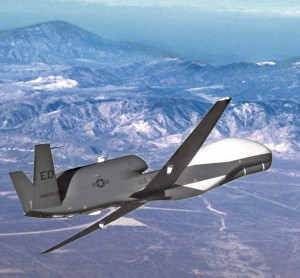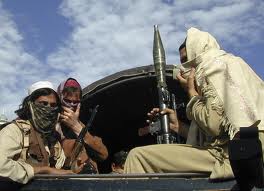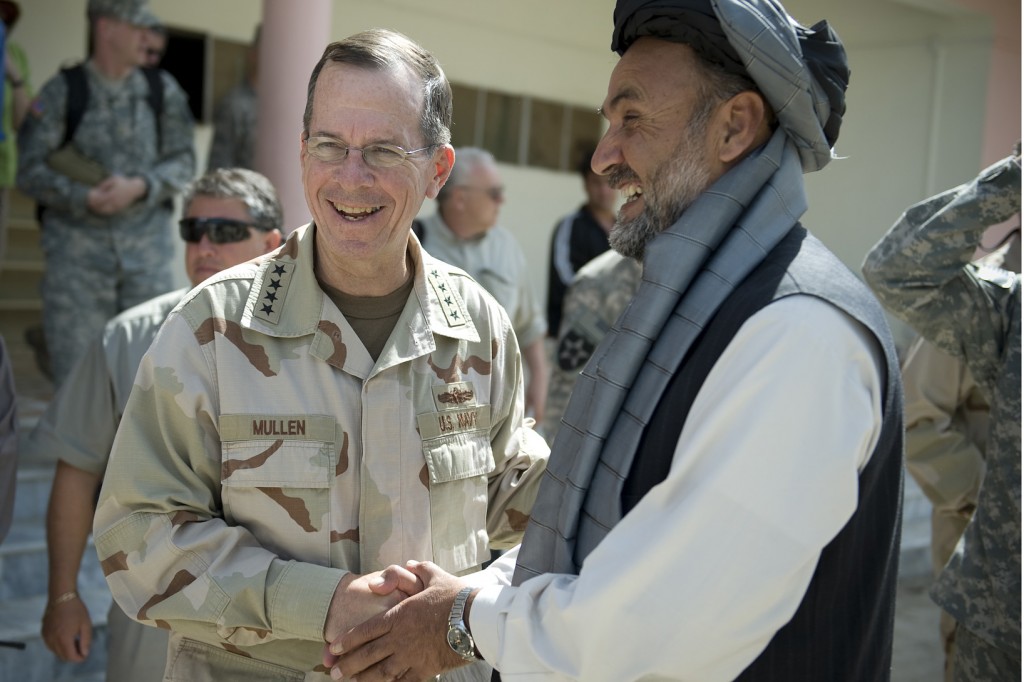Islamabad’s Afghan policy: the struggle for Pakistan’s soul
New in Ceasefire, Special Reports - Posted on Friday, January 14, 2011 13:54 - 0 Comments
By Harry Verhoeven
For 30 years, Pakistan and Afghanistan have been locked into a deadly embrace. The ‘AfPak’ relationship started off as a chapter in the Cold War, but has morphed into an immensely complex dynamic involving foreign armies, extremist ideologies, drug smugglers, aid flows, drone strikes, gas pipelines and world’s biggest refugee flows. The rise of the Tehrik-i-Taliban in Pakistan’s Federally Administered Tribal Areas (FATA) and Khyber Pakhtunkwha is a direct consequence of the spill-over of the Afghan conflict. The rising human cost of the rebellion of Pakistan’s own extremists raises an awkward question: is Pakistan’s Afghan strategy about securing its national interests – peace, security and prosperity for all Pakistanis – or is it actually imperilling the foundations of the Pakistani state itself?
For Pakistan’s military establishment, which oversees Islamabad’s Afghan policy, Afghanistan has long played a pivotal role in confronting the old Indian enemy. Whereas before the breakaway of Bangladesh, the generals believed that “the defence of the West lies in the East” – deterring an Indian attack on Islamabad by threatening to strike Calcutta – after 1971 the Pakistani Army’s thinking has centred on the “strategic depth” that Afghanistan can provide. If the doom scenario is an Indian invasion of Punjab and Sindh, then a tactical retreat to the Afghan mountains for a counter-offensive is the suggested remedy. This underlines the importance of having an ally in Kabul with unquestionably pro-Pakistani loyalties – hence the support of Pakistan’s powerful Inter-Services Intelligence (ISI) for the anti-Soviet mujahedeen in the 1980s and for the Taliban’s rise to power in 1994-1997.
Moreover, for decades, the ISI has instrumentalised radical Islam, seeking to use ‘holy warriors’ in disputed Kashmir to put pressure on Delhi; the Taliban and Al Qaeda trained thousands of militants to fight India, again with ISI money facilitating the alliance. This policy has always been widely backed by Pakistan’s political elites- Zulfikar Ali Bhutto, Zia-Ul-Haq, Nawaz Sharif, Benazir Bhutto and Pervez Musharraf might have disagreed on many other questions, but not on the necessity of having their Western flank covered, when looking east to face their Indian nemesis.
9/11 and the Global War on Terror threatened to turn the world upside down, as Islamabad’s own security concerns were superseded by geopolitics. Washington demanded – and got – a 180 degree turn in ISI policy, receiving substantial support to confront Al Qaeda operatives and their Afghan allies. The Northern Alliance – Pakistan’s traditional Afghan enemies, supported by Delhi – became the military backbone of the new government. Hamid Karzai was made president as a sob to the pro-Pakistani Pashtun, but the rapid rapprochement between Afghanistan and India underlined just how diminished Islamabad’s influence in the region was.
 But the Iraq war again altered the situation. With neo-conservative America obsessed by Saddam, funds and manpower were lacking to secure Afghanistan’s territory and boost its economy; discontent rose as Karzai’s government failed to provide its people with justice, security and real economic progress. An unrepentant ISI seized its chance to re-launch the Taliban and regain influence, working particularly through the old mujahedeen network of Jalaluddin Haqqani in Eastern Afghanistan; this counter-offensive received political backing as Musharraf relied on radical Islamists for domestic support (their MMA-coalition ran Musharraf’s provincial administration in the border areas) and tried to appease his hardline critics by providing covert assistance to the jihadi cause. Despite the Taliban gaining ground thanks to their ISI friends, billions of American dollars kept flowing to Pakistan without too many questions asked. Yet what seemed to be Islamabad having its cake and eating it was really the beginning of Frankenstein’s monster turning on its creator.
But the Iraq war again altered the situation. With neo-conservative America obsessed by Saddam, funds and manpower were lacking to secure Afghanistan’s territory and boost its economy; discontent rose as Karzai’s government failed to provide its people with justice, security and real economic progress. An unrepentant ISI seized its chance to re-launch the Taliban and regain influence, working particularly through the old mujahedeen network of Jalaluddin Haqqani in Eastern Afghanistan; this counter-offensive received political backing as Musharraf relied on radical Islamists for domestic support (their MMA-coalition ran Musharraf’s provincial administration in the border areas) and tried to appease his hardline critics by providing covert assistance to the jihadi cause. Despite the Taliban gaining ground thanks to their ISI friends, billions of American dollars kept flowing to Pakistan without too many questions asked. Yet what seemed to be Islamabad having its cake and eating it was really the beginning of Frankenstein’s monster turning on its creator.
Islamabad’s Afghan strategy depends on the assumption that the ISI can deploy and reign in its proxies whenever it likes. Yet the limits of allowing your dog to bite the (American) hand that feeds you have become dramatically clear. The extremists that the ISI has long deployed against its enemies in Afghanistan and Kashmir have interests of their own, and considered this partnership just as much an alliance of convenience as did the generals. Years of war and paranoia have lead to an internal radicalisation of the Taliban-led coalition, which spans a broad range of interests that are increasingly clashing with those of the Pakistani state. Whereas initially their marching orders were dictated by ISI operatives, the jihadi coalition has acted in increasingly autonomous ways. At the same time, as America’s attention has returned to the AfPak border amidst a worsening Afghan situation, the pressure on first Musharraf and now President Zardari has increased: cracking down on Taliban sanctuaries in FATA but also in Quetta; disrupting the financial flows to and from Afghanistan; allowing deeply unpopular drone strikes on Pakistani territory; and purging ISI and Army officers with pro-Taliban sympathies have all become non-negotiable American demands (though presented with enticing multi-billion dollar cheques and much craved military hardware to swallow the bitter pill).
Yet in turning on its former allies, the Army’s bloody ventures into historically neglected and badly misruled FATA have lead to a struggle for Pakistan’s own soul as the transnational jihadi coalition has hit back, lead by the homegrown Tehrik-i-Taliban. Following the stand-off in Lahore’s Lal Masjid in July 2007, a veritable insurgency has killed thousands in a string of terrorist attacks, including the assassination of Benazir Bhutto. Important swathes of Pakistan’s Northwest were abandoned by the state, recaptured only partially through brute force. The armed forces now find themselves in the absurd situation of fighting the very people they once trained, supplied and armed, and the very people who were supposed to be its force-de-frappe against India in Afghanistan and Kashmir. Although public opinion, initially wavering, now firmly backs the confrontation with the Tehrik-i-Taliban, the war with the Taliban-Al Qaeda hydra has revealed a wider, existential governance crisis that cannot be solved through quick fixes and military means alone.
Pakistan’s political and economic institutions have been gravely eroded over the past decades through neglect, underinvestment and corruption, shrinking their ability to deliver public goods in normal times – employment, justice, education & health care – but especially at moments of crisis, like the 2005 earthquake and the devastating 2010 floods. The Pakistani state is still de jure in charge of the entire territory, but has really lost its monopoly on violence in all provinces: if Karachi is tormented by sectarian unrest and Balochistan by a (India-supported) autonomy-seeking rebellion, Southern Punjab is infiltrated by the state’s former friends turned extremist enemies and whole swathes of Khyber Pakhtoonkhwa and FATA are in Taliban hands. The fall of General Musharraf, squeezed between his American overlords, the lawyer’s movement, military hawks and a disillusioned population, lead to a sigh of relief, but could not remedy the deeper institutional problems that beset the country.
underinvestment and corruption, shrinking their ability to deliver public goods in normal times – employment, justice, education & health care – but especially at moments of crisis, like the 2005 earthquake and the devastating 2010 floods. The Pakistani state is still de jure in charge of the entire territory, but has really lost its monopoly on violence in all provinces: if Karachi is tormented by sectarian unrest and Balochistan by a (India-supported) autonomy-seeking rebellion, Southern Punjab is infiltrated by the state’s former friends turned extremist enemies and whole swathes of Khyber Pakhtoonkhwa and FATA are in Taliban hands. The fall of General Musharraf, squeezed between his American overlords, the lawyer’s movement, military hawks and a disillusioned population, lead to a sigh of relief, but could not remedy the deeper institutional problems that beset the country.
The state, supposedly the guardian of the interests of all Pakistanis, is held hostage by key power blocs that have lead the country to the brink, whether because of hubris, greed or because their definition of Pakistan’s national interest was actually an articulation of their own desires and fears. The smuggling of drugs and illicit goods across the AfPak border is mirrored in a state that fails to collect taxes properly, particularly among its wealthier citizens. The historical neglect of peripheries like FATA – controlled through patronage and repression – is a direct result of the dominance of Pakistan’s political and military leadership by a narrow Punjabi elite. The insurgency has a strong centrifugal dimension.
The Army’s post 9/11 attempt at reconstructing its influence over Afghanistan, drawing in lucrative goodies from the Americans, warding off foreign pressure and resisting Indian encroachment has failed abysmally: while it has definitely lead to higher defence budgets and a lock-in of the military’s central role in Pakistani politics, it has also deepened autocratic rule, corruption in the economy, insecurity in Afghanistan, as well as causing the deaths of thousands of Pakistanis as Frankenstein’s monster has turned on its creator. Particularly following the 2008 Mumbai attacks, global sympathy rests firmly with India and the US-Indian nuclear deal signals a deepening strategic alliance between Washington and Delhi, threatening to leave Pakistan isolated sooner rather than later. This begs the fundamental question of whether Pakistan can develop a new Afghan strategy that genuinely secures its national interests – peace and security for all Pakistanis – instead of further imperilling the foundations of the Pakistani state itself.
A fundamental rethink of strategy in Islamabad is all the more important as Obama, Petraeus and their NATO allies frantically search for a way out of the Afghan quagmire – the official date to start withdrawing is July 2011 – and experts caution against a repeat of the catastrophic Soviet withdrawal in the late 1980s: a power vacuum following the American pullout could suck in a whole range of regional powers and criminal spoilers, each backing their own strongman with his militia to secure zones of influence and smuggling routes. Of all Afghanistan’s neighbours, Pakistan is the best placed to help bring about a durable solution given its knowledge of the country and its proximity to the Taliban and the Pashtun elite who need to be part of any political settlement. Whether it capitalises on that opportunity or not, is not just a matter of great importance to Obama’s political fortunes and Afghanistan’s people: Pakistan’s own future vitally depends on it.
Harry Verhoeven is a doctoral researcher at the Department of Politics & International Relations, University of Oxford (St Cross College).



Leave a Reply